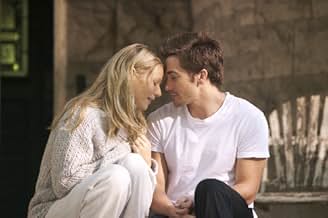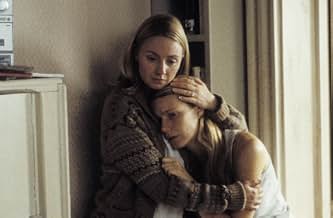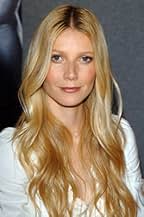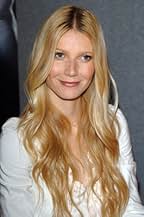हाल ही में मर चुकें, एक प्रतिभाशाली लेकिन मानसिक रूप से परेशान गणितज्ञ की बेटी, अपनी संभावित विरासत: पिता के पागलपन को कब्जे में लेने की कोशिश करती है. मामले की पेचीदगी तब बढ़ जाती है जब उसक... सभी पढ़ेंहाल ही में मर चुकें, एक प्रतिभाशाली लेकिन मानसिक रूप से परेशान गणितज्ञ की बेटी, अपनी संभावित विरासत: पिता के पागलपन को कब्जे में लेने की कोशिश करती है. मामले की पेचीदगी तब बढ़ जाती है जब उसके पिता के पूर्व छात्रों में से एक, उनके कागजातों ककी खोज बीन करना चाहता है, और उनकी अलग हो... सभी पढ़ेंहाल ही में मर चुकें, एक प्रतिभाशाली लेकिन मानसिक रूप से परेशान गणितज्ञ की बेटी, अपनी संभावित विरासत: पिता के पागलपन को कब्जे में लेने की कोशिश करती है. मामले की पेचीदगी तब बढ़ जाती है जब उसके पिता के पूर्व छात्रों में से एक, उनके कागजातों ककी खोज बीन करना चाहता है, और उनकी अलग हो चुकी बहन मामलों को सुलझाने में मदद करने आती है.
- पुरस्कार
- 4 जीत और कुल 6 नामांकन
- Limo Driver
- (as Tobiacz Daszkiewicz)
- University Friend
- (as C Gerod Harris)
- American Student
- (बिना क्रेडिट के)
- Wake Guest
- (बिना क्रेडिट के)
फ़ीचर्ड समीक्षाएं
I only have two quibbles. One, there was not enough mathematics in the movie OR the play. Everyone has studied advanced math, so why not challenge the audience a little more and let us in on what the proof is actually about. It is kind of like watching a movie about a musician and not letting the audience hear any of the music! Two, it is not believable that in a crucial scene towards the end of the movie, that neither Catherine and especially the more materialistic Claire would not care what ultimately happens to the proof, especially when being told of its possible value.
Aside from these flaws, if you are looking for intelligent fare and a break from mindless action films and the mostly unfunny comedies of the past summer, you owe it to yourself to see this film. The theater I saw it in was almost empty, so I fear it is not doing too well. Remember that every ticket you buy is a vote for more of that kind of film being made. Let's hear it for more stimulating and mature films like this one!
This is a compelling portrayal of the mathematical obsession. It's not as flashy or romantic as cinema tries to dress up math sometimes. It is a bit sad. Paltrow does great work following Hopkins. She shows that she's not simply a romantic lead. It's a compelling character study.
I didn't see the David Auburn play on which the movie is based, and maybe many of the film's detractors have: screen adaptations of favorite plays often seem to dilute them to the detriment of the story. But if this movie is worse than its stage counterpart, it must have made one damn fine play.
The acting in this film is its major attribute, and director John Madden is wise enough to realize the talent of his ensemble and stand out of their way. He plays a bit with chronology and lets the pieces of his story click into place much like a math puzzle; I don't know whether or not this is original to the film or borrowed from the play, but either way it works well. But mostly, he lets the actors strut their stuff, and the four principals make the most of meaty roles.
Most of the acclaim has been falling, and rightly so, to Gwyneth Paltrow, who gives a full-bodied, textured and powerful performance as Catherine, who has inherited her genius at math from her father and is deathly afraid that she may have inherited his madness as well. I don't know that Paltrow has yet had a role as substantial as this one, and she flexes her acting chops in a way I have not seen her do outside of her underrated performance in "Sylvia." Hope Davis matches her scene for scene as the astringent older sister; it's refreshing to see Davis break away from the mousy, mealy persona she so frequently adopts and play this crisp, overwhelming character. The male actors have less to do overall, but the roles are perfectly cast. Jake Gyllenhaal is ripe for stardom, and this may be the year that brings it. Anthony Hopkins has been dismissed as hammy here, but I think he does an effective job of portraying mental illness, and creates heartbreaking moments that could have been ruined had they been played differently.
"Proof" feels entirely honest about the dynamics of dysfunctional families; you just know David Auburn is writing from personal experience. Like Robert Redford's "Ordinary People," if you have any exposure to similar family dynamics, you know the team that put the film together got everything just right. "Proof" also creates a parallel between mathematics and the messiness of life that makes one re-evaluate the rigidity of what always appears to be an exact science. As one must accept a level of ambiguity in life, one must also be willing to make leaps of faith in mathematics, because nothing can be 100% proved.
I highly recommend this film. It's satisfying on both an intellectual and emotional level. And any movie that can make math exciting to me gets an automatic thumbs up.
Grade: A
Mr. Auburn and Rebecca Miller, a movie director, herself, took the task of adapting "Proof" for the screen. The result, directed by John Madden, opens the play in cinematic terms, no small undertaking in presenting the movie to a wider audience who might not be interested in science, and much less in the advanced math that plays an important role in the proceedings.
If you haven't seen the film, please stop reading here.
Catherine, the 27 year old, at the center of the film, is a woman who has stayed behind to take care of her aging father, a man much esteemed in academic circles, who is suffering from, perhaps, a neurological illness that is killing him slowly. Catherine has, in a way, sacrificed her life in order to see that Robert spends his last days at home instead of at an institution.
The death of the father brings Claire home. This woman, who lives in New York, wants to get rid of everything connected with her father. She even has made plans for Catherine to move from Chicago to be near each other in New York, where things are much better. To complicate things, Harold, the nerdy math student, finds a hidden notebook that might contain a discovery that will revolutionize math. The only problem is the proof might not have been the dead man's own creation.
"Proof" works as a film because of Mr. Madden's direction. We are kept involved in what is going on because we have been won by Catherine, the wounded woman trying to live her life without having to tend to a sick man. Catherine love for math, in a way, makes her realize her place is in the same institution where her father made mathematical discoveries as she will be following his steps.
Gwyneth Paltrow makes an excellent Catherine, a role she had played on the London stage. Ms. Paltrow is a welcome presence in the movie because of the intelligence she projects when working with a good director like John Madden. In fact, it has been a while since we saw this actress in a film.
Hope Davis, another excellent actress, plays Claire, the materialistic sister who has arrived and who wants to transform the frumpy Catherine and mold her to her own taste. Ms. Davis has accustomed us to expect a valuable contribution to any film in which she plays. As Claire, she clearly understand who this character she is portraying really is.
Anthony Hopkins has only a few good moments on the screen. Jake Gyllenhaal's character Harold is not as effective as Ben Shenkman's was on the stage. In fact, Mr. Gyllenhaal, with his dark good looks, seems to be someone who would not be interested in math at all.
"Proof" is an immensely rewarding film thanks to what John Madden's vision.
क्या आपको पता है
- ट्रिवियाGwyneth Paltrow reprised the role of Catherine that she had played on stage in London's West End.
- गूफ़The daughter talks about how the father was looking for a message from aliens in the Dewey decimal call numbers on the books from the University of Chicago library. The University of Chicago uses Library of Congress call numbers, which begin with letters, not numbers.
- भाव
Catherine: [Reading Robert's Notebook] "Let X equal the quantity of all quantities of X. Let X equal the cold. It is cold in December. The months of cold equal November through February. There are four months of cold, and four of heat, leaving four months of indeterminate temperature. In February it snows. In March the Lake is a lake of ice. In September the students come back and the bookstores are full. Let X equal the month of full bookstores. The number of books approaches infinity as the number of months of cold approaches four. I will never be as cold now as I will in the future. The future of cold is infinite. The future of heat is the future of cold. The bookstores are infinite and so are never full except in September..."
- कनेक्शनFeatured in The 63rd Annual Golden Globe Awards 2006 (2006)
- साउंडट्रैकEl chocha loca
(2002)
Written by Claudio Quattrocchi
Performed by Loca
Published by Big Tiger Music (BMI)
Courtesy of Lovecat Records
By Arrangement with Ocean Park Music Group
टॉप पसंद
- How long is Proof?Alexa द्वारा संचालित
विवरण
- रिलीज़ की तारीख़
- कंट्री ऑफ़ ओरिजिन
- आधिकारिक साइट
- भाषा
- इस रूप में भी जाना जाता है
- Доказ
- फ़िल्माने की जगहें
- उत्पादन कंपनियां
- IMDbPro पर और कंपनी क्रेडिट देखें
बॉक्स ऑफ़िस
- बजट
- $2,00,00,000(अनुमानित)
- US और कनाडा में सकल
- $75,35,331
- US और कनाडा में पहले सप्ताह में कुल कमाई
- $1,93,840
- 18 सित॰ 2005
- दुनिया भर में सकल
- $1,41,89,860
- चलने की अवधि1 घंटा 40 मिनट
- रंग
- ध्वनि मिश्रण
- पक्ष अनुपात
- 2.35 : 1





































